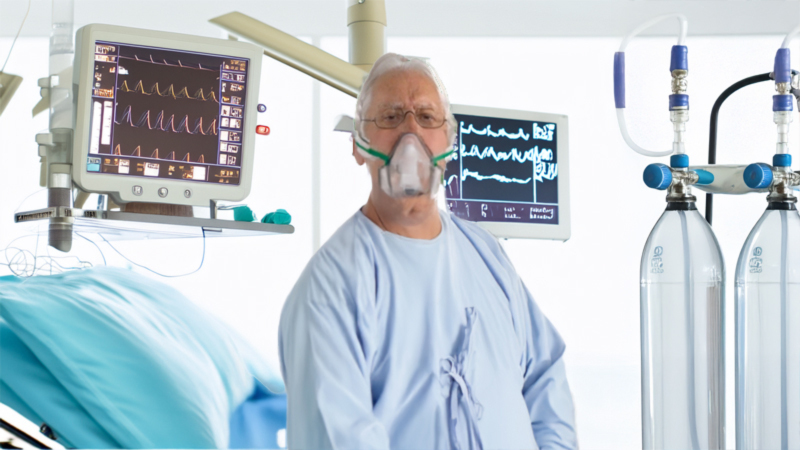Heart failure isn't just about a weakened heart; it can cause damage throughout the body. Reduced blood flow and fluid buildup can impair vital organs such as the kidneys, liver, lungs, and even the brain. This systemic failure deprives organs of oxygen and nutrients, leading to serious health complications.
How Heart Failure Affects Other Organs:
Reduced Blood Flow: When the heart can't pump effectively, organs don't receive enough oxygen-rich blood.
Fluid Buildup: Congestion in the lungs (pulmonary edema) and pressure on the liver can occur.
Kidney Dysfunction: Kidneys require steady blood flow to filter waste; reduced flow can lead to failure.
Liver Damage: Congestion and reduced blood supply can harm liver cells.
Lung Problems: Fluid in the lungs causes breathing difficulties, often requiring sitting upright for rest and sleep.
Malnutrition: Abdominal fluid and impaired absorption can make eating and nutrient intake difficult.
Brain: Reduced blood flow may cause confusion or dizziness.
Consequences of Multi-Organ Failure
The damage to multiple organs increases the risk of mortality and can worsen overall health, creating a dangerous cycle. Managing and preventing this systemic failure is a key focus in heart failure treatment.
Upcoming Procedure: Transcatheter Aortic Valve Implantation (TAVI)
I am scheduled for a TAVI procedure to address aortic valve stenosis—a narrowing of the aortic valve. This minimally invasive surgery involves guiding a new valve into my heart through a catheter inserted into a blood vessel.
What to Expect with TAVI:
The procedure takes about three hours.
I’ll likely be awake, sedated, and numbed locally; in rare cases, general anesthesia may be used.
The process involves five key steps: access, crossing the valve, balloon valvuloplasty, valve implantation, and closure.
Success rates are high, with about 95.7% survival at 30 days and 86.9% at one year.
Recovery and Aftercare:
Recovery typically lasts 4–6 weeks, with gradual activity resumption.
I may feel emotional or tearful post-procedure.
About 17% of patients need a pacemaker during hospitalization.
I’ll be on medications like aspirin and possibly clopidogrel to prevent clotting.
I won’t drive for at least one month post-surgery, depending on my recovery.
Age and Suitability:
TAVI can be performed across a wide age range, including patients in their 80s and beyond.
The decision is personalized, based on overall health and severity of valve disease.
The procedure usually takes 1–2 hours, and the heart remains beating throughout.
Potential Risks:
Damage to the heart’s electrical system may require a pacemaker.
Hospital stay generally lasts 2–3 days, sometimes longer.
Final Thoughts
While open-heart surgery remains a standard, many prefer minimally invasive options like TAVI. With careful planning and medical guidance, outcomes are promising, and long-term survival can be excellent—especially when tailored to individual health needs.
Trust in Faith and Medical Expertise
I am trusting in God’s grace, scripture (Isaiah 53, 1 Peter 2), and the prayers of my church elders to support me through this journey.










